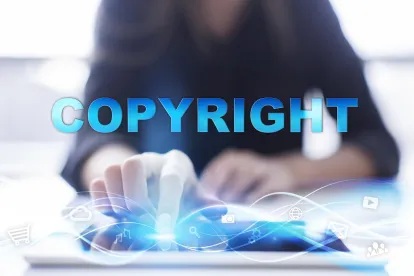Twenty-three years after the passage of the Digital Millennium Copyright Act (“DMCA”), the social media landscape remains a “Wild Wild West” for copyright owners. Though not afforded the attention attracted by the spread of misinformation on these platforms, copyright enforcement can be an uphill battle for copyright owners, as social media companies struggle to enforce rules of conduct for the enormous output of third-party content they host.
Copyrights on Social Media
The DMCA is intended to encourage the growth of the web and the free speech hosted by so-called “Internet Service Providers” (ISPs) who do not create but merely publish, content created by third parties. At the same time, the law provides a roadmap for copyright owners to enforce their rights. Under the DMCA, once a copyright owner provides notice of infringement (a “takedown notice”) to a so-called “DMCA agent” (an employee of the ISP), the ISP is required to take down the content. The creator or poster of the content has a right of “counternotification,” which, if exercised within ten days, will obligate the ISP to re-post the content unless the copyright owner sues within this ten-day period.
Unfortunately, as with content regulation for other reasons (misinformation, libel, impersonation), social media companies are overwhelmed by the sheer volume of content they carry and have outsourced the regulatory function to automated procedures and a bevy of individuals with no legal background who too often fail to grasp the many nuances embedded in U.S. copyright law. Many times, we have had clients with real issues wait for weeks for social media companies to act on takedown notices. This is particularly true where the ISP wears multiple hats.
Amazon, for example, is an e-commerce platform but also provides servers on which it hosts content. If the intellectual property owner writes to or uses the takedown portal for, the “wrong” part of Amazon, the takedown notice may be ignored. In that case, having your attorney correspond with in-house counsel to remove infringements, particularly egregious ones, can be very helpful. Moreover, even poorly grounded counternotifications result in the automatic reposting of content by the platform, which need not worry about liability for the reposted content, as it acted by initially taking down the content.
The CASE Act
The newly-enacted Copyright Alternative in Small-Claims Enforcement Act of 2020 (the CASE Act) reduces some of the burdens of bringing suit against social media companies but is still not an ideal solution for the copyright owner whose content should have been promptly and permanently removed. For more about the CASE Act, read last week’s blog post, “The CASE Act: A Small Claims Court for Copyright Infringement.”
Alas, a more permanent solution will have to await Congressional action. Discussion in Congress concerning the repeal or modification of section 230 of the Communications Decency Act, which currently shields social media platforms from liability for misinformation and libel, should be accompanied by a close examination of how the DMCA works in practice.




 />i
/>i
